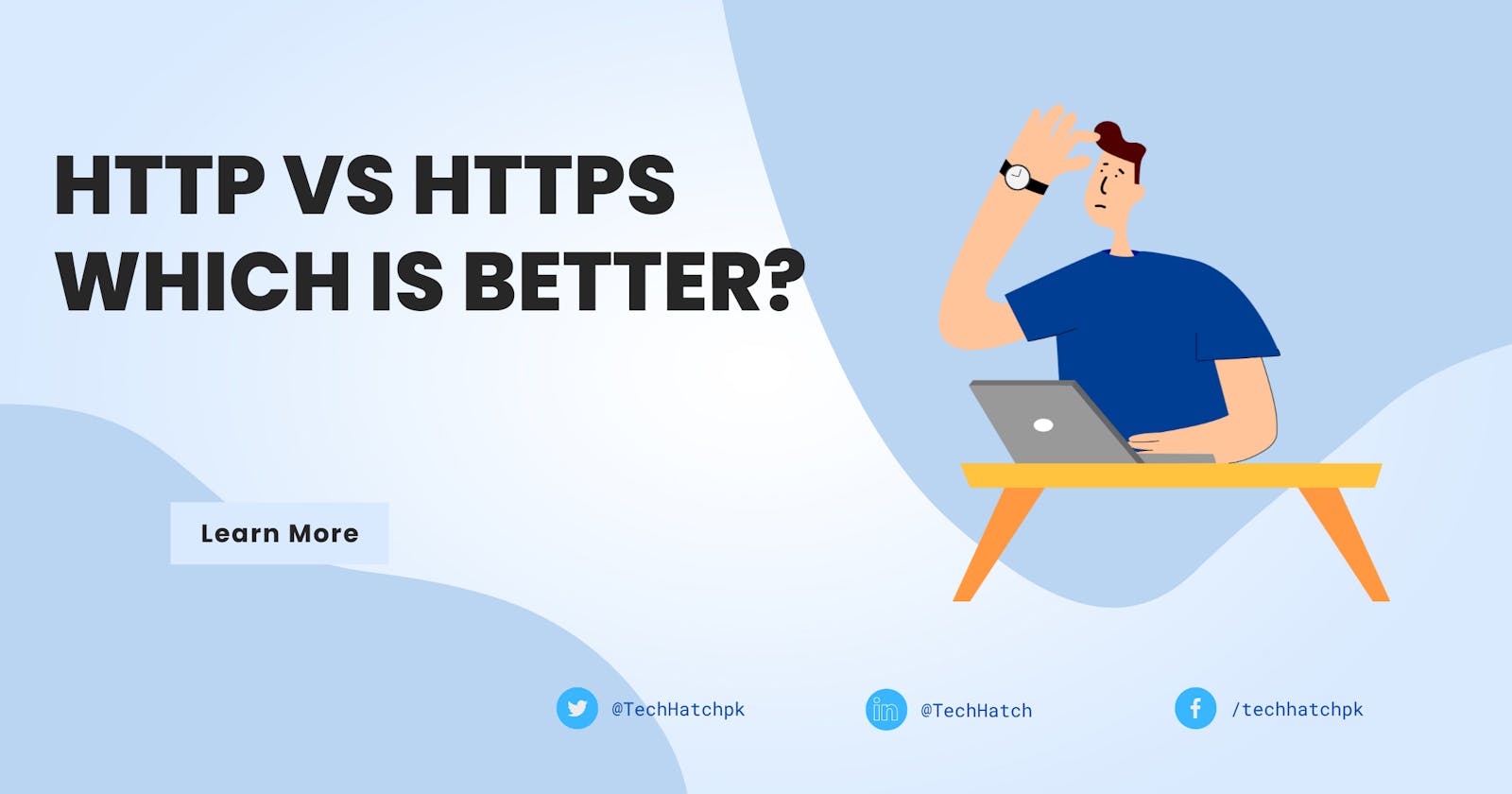In our daily lives, we deal with HTTP and HTTPS quite a bit, but many people are unaware of the differences.
A QUICK introduction to HTTP vs HTTPS.
The majority of computer users only see that their browser is alerting them that their program is not secure and that a hacker might be attempting to steal their crucial data. As a result, users flee at speeds that break Usain Bolt's record. But we can avoid this. At this point, HTTP is replaced with HTTPS. And that's what we're going to talk about today. This article will walk you through the process if you're considering upgrading to the HTTPS protocol but are unsure how it will impact your website.
We will discuss the security, performance, and search engine optimization (SEO) advantages of HTTP and HTTPS.
We'll also examine the differences between the HTTP and HTTPS protocols for data transmission over the internet and the crucial function of SSL certificates.
In addition, we'll go over the advantages and disadvantages of each protocol to assist you in deciding whether to switch.
A quick difference:
Hypertext Transfer Protocol is known as HTTP. It is the protocol that makes it possible for various systems to communicate with one another and exchange data and information over a network.
But HTTPS, which stands for Hypertext Transfer Protocol Secure, is another story. HTTPS works to secure data transmission between web servers and browsers even though it performs many of the same tasks as HTTP.
A digital security protocol called HTTPS protects connections by encrypting and validating data using cryptographic keys. By obtaining a Secure Sockets Layer (SSL) or Transport Layer Security (TLS) certificate, websites can use HTTPS and have a secure domain most frequently.
Remember that although TLS is rapidly replacing SSL as the preferred protocol for HTTPS, most SSL certificates still support both protocols.
How HTTP Works
HTTP uses plain text to deliver data. For instance, if your bank's website is utilizing HTTP and you were to access it, a hacker might be able to do so and read whatever information you provide. HTTPS is useful in this situation. To enable users to submit data securely, several businesses have adopted HTTPS. Here is an example of an HTTP request 👇.

How HTTPS Works
In order to establish a secure connection, HTTPS employs a secure protocol that encrypts your data. The best approach to have HTTPS on most websites is to obtain an SSL (Secure Sockets Layer) or TLS (Transport Layer Security) certificate.
Currently, SSL is capable of supporting TLS due to its advancement. So, you are not need to obtain a TLS certificate. Here is an example of an HTTPS request 👇.

HTTP vs HTTPS: Which One Is Better for My Site?
Actually, there is no right response.
Everything relies on the kind of website you manage and the data you use. For instance, the security requirements for a straightforward portfolio website and an eCommerce site with membership features and electronic payment systems are different.
However, HTTPS is quickly becoming the norm for all websites, therefore it doesn't matter if your site handles sensitive data. Additionally, having an SSL certificate enabled on your website has a lot of advantages.
When choosing between HTTP and HTTPS, take into account the following criteria.
Conclusion
As developers, HTTP and HTTPS play crucial roles in daily operations. Much of our work is made possible by the interaction between the browser and the server.
You will win their trust and give them a better user experience by protecting your users' data as much as you can to prevent information theft.
